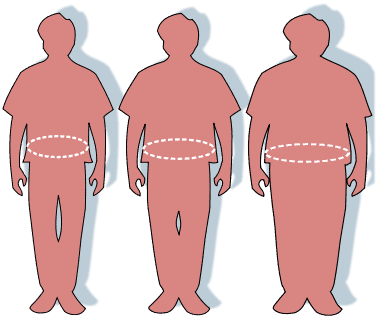Overweight young people are more likely to be rejected as friends by peers who are of normal weight, according to new research by Arizona State University social scientists.
“Using Social Network Analysis to Clarify the Role of Obesity in Adolescent Friend Selection,” published in the American Journal of Public Health by Arizona State University associate professors David R. Schaefer of the School of Human Evolution and Social Change and Sandra D. Simpkins of the T. Denny Sanford School of Social and Family Dynamics, incorporated knowledge of how complex social and biological relations contribute to friendship behavior.
“We found consistent evidence that overweight youth choose non-overweight friends more often than they were selected in return,” Schaefer said. Researchers found that overweight youth were mostly indifferent to the weight status of their friends. These results suggest that overweight youth often reach out to non-overweight peers for friendship, but are sometimes rebuffed in those efforts. As a consequence, overweight youth may turn to overweight peers for friendship.
Young people are also more likely to socially marginalize those who are overweight. As a consequence, overweight youth have one fewer friend, on average, than normal weight young people.
“This is especially troubling since friendships are important sources of support and companionship,” Simpkins said. “Not having or losing friends is associated with higher depression and lower self-worth for young people, which could exacerbate the health problems associated with being overweight.”
The influence of not having friends or being shunned because of extra weight can be especially difficult during formative teen years.
“Negative repercussions of not having friends may be more pronounced in middle- and high-school when intimacy and fitting into peer groups is critical,” Schaefer said.
Researchers analyzed data for the study from the National Longitudinal Study of Adolescent Health that surveyed 58,987 students in 88 middle and high schools. The average age of the multiracial survey sample was 15 and 51 percent were female. Approximately 20 percent of students surveyed provided body mass index data. Students who participated in the study identified their 10 closest friends, five of whom were female and five who were male.
Researchers utilized social network analysis in the study in order to account for different types of friend selection processes, such as attraction based on similarities, meeting during extracurricular activities, or meeting through a mutual friend. This allowed the researchers to isolate the effect of weight status on friend selection.
“Long-term implications of the study include considering ramifications of social marginalization for prevention and intervention strategies that support the emotional development of overweight youth,” Simpkins said.



It is interesting to notice that it is a complete vicious cycle. The overweight kid reaches out to try to form a friendship with a normal/average weight kid and in most cases are rejected this in turn makes the overweight issue even worse because of depression.
It is all very superficial. Most people have heard the cliche saying “Don’t judge a book by it’s cover” from their mothers from a young age and obviously this was taken too lightly. In my opinion there is much more to a person than appearance. Nevertheless, this study has shown that overweight kids are indeed discriminated against. That being said maybe in society we should promote the fact that being overweight is not good for your health in a physical and emotional way. If a teenager is of normal weight he/she would have a higher self-esteem which enables the teenager to perform better in other aspects of their lives.
The social media I’m sure has something to do with the mind set of teenagers these days. You see all these skinny and tall looking women with their cheek bones protruding and begin to become brainwashed into thinking that that is acceptable. It is actually very sad to think that to be accepted one has to be thin. There are so many other aspects of a person’s personality which makes them unique.
Lecturer: Naomi Boakye
14296862
Very true. I was once a victim when i was young in primary. Very interesting article and i wish the affected young people should read this s that they know that its not only them who r being stigmatized.